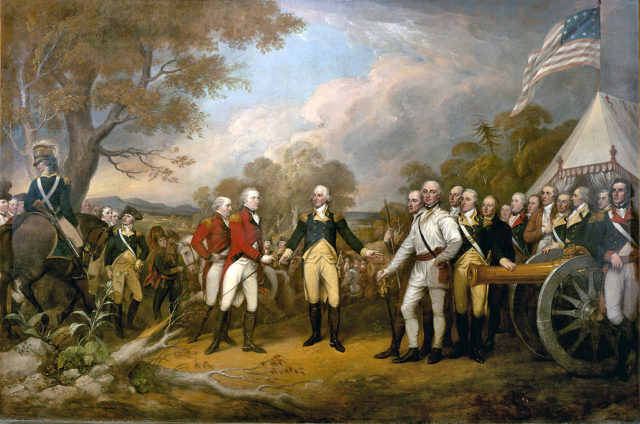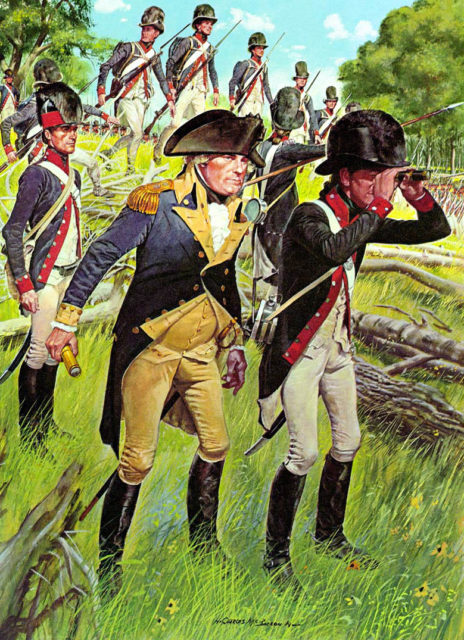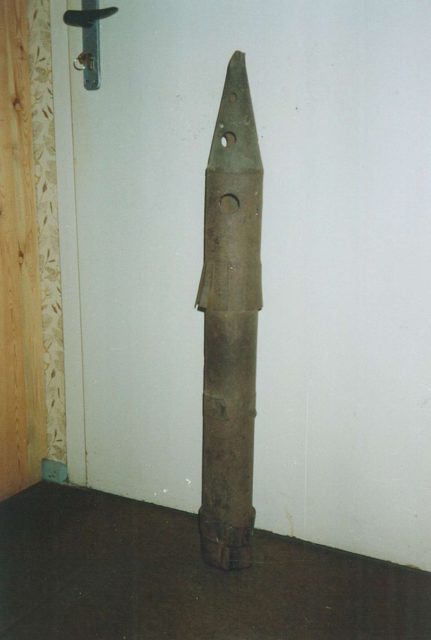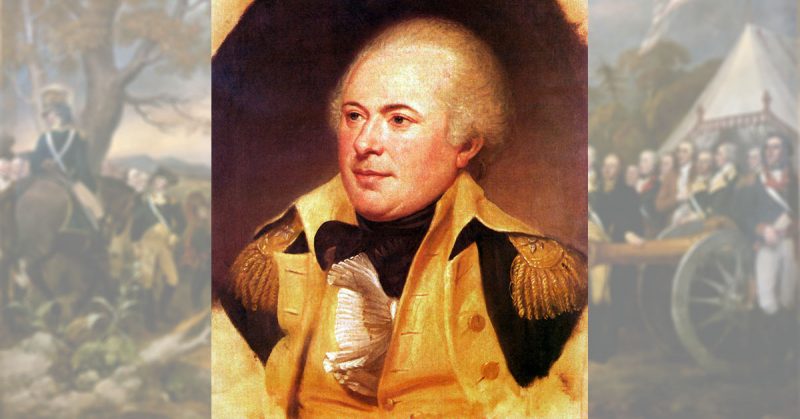The Title of “worst general in U.S. History” is certainly not one to aspire to, but where there have been the greats like Patton and Grant, there have to be the utter failures. Unfortunately for the young nation of the U.S.A., James Wilkinson likely has a firm hold on the title of worst general.
Wilkinson was born in the perfect location for his future record, Benedict, Maryland. Wilkinson served as a captain in the early battles of the Revolutionary War such as the Battle for Dorchester Heights. He served as an aide to Benedict Arnold before transferring as an aide to Horatio Gates.
In 1777 Gates sent Wilkinson to Congress to deliver news of the victory at Saratoga. Saratoga was a critically important American victory, but Wilkinson had several personal matters that he attended to before delivering the news. When he did show up to Congress he greatly embellished his role in the pivotal victory so much so that he was given high honors for his fabricated role in the battle. These honors included being appointed to the newly created Board of War and given the honorary status of Brigadier General.

Horatio Gates grew tired of Wilkinson’s embellishments and lies and pushed him to resign in 1778. Wilkinson soon rejoined after Congress appointed to a job as clothier-general of the army, a job Wilkinson quickly became bored of, resigning after a few years.
Wilkinson then settled into the generalship of the Pennsylvania militia and served as a state assemblyman. He moved to the Kentucky, which was still under the ownership of Virginia. Here Wilkinson truly began his string of awful service to the U.S.A. He started by visiting Spanish-owned Louisiana and worked mostly in secret with the Spanish Governor Miro. He conspired to give Kentucky a trade monopoly on the Missouri in exchange for passing along information to Spain and promoting Spanish interests.
Wilkinson was paid a large salary for his work with the Spanish crown and he attempted to secure some Spanish land in America for himself should he need to escape U.S. prosecution for treason. Eventually, even the Spanish lost faith in him as an agent and requests for favors and information slowed, though Wilkinson continued to gain a salary for several years after and occasionally renewed his work with the Spanish.
Wilkinson then got into a small raid during the Northwest Indian War. These raids were quite small in scale but Wilkinson’s successes here got him promoted to Lieutenant Colonel, an appointment as Brigadier General soon followed. Wilkinson was known as a smooth talker, making his extravagant boasts more believable, unless someone got to know his tricks, like Horatio Gates.

Wilkinson had a long rivalry with the general of the short-lived Legion of the United States, Anthony Wayne. Wayne uncovered strong evidence of Wilkinson’s treasonous relationship with the Spanish. In response, Wilkinson slung countless accusations and criticisms at Wayne. Despite Wayne’s solid record and work towards court-martialing Wilkinson, nothing could be done to remove Wilkinson from his position. Wayne would eventually die in 1796, still embroiled in the rivalry.
A messy trial where Aaron Burr was charged with treason followed. Wilkinson was embroiled in the trial and almost convicted of misprision of treason, essentially aiding or knowingly allowing treason. Though no charges stuck on Wilkinson, the foreman of the grand jury said this of Wilkinson: “the only man I ever saw who was from the bark to the very core a villain.”
Wilkinson’s largest battles came during the War of 1812. In a Canadian campaign, Wilkinson served in joint operations in Ontario. The operation involving 8,000 American troops was delayed at the very start because Wilkinson needed a few extra weeks to prepare his troops. The ensuing Battle of Crysler’s Farm was a decisive British/Canadian victory where less than 1,000 men held off the poorly planned attack of 8,000 Americans.
The debacle would lead to another court hearing. While his own court-martial was still being prepared, Wilkinson set off on an aggressive campaign to regain some credit for himself. With 4,000 men, Wilkinson set out to take out a British garrison of 80 men guarding the Lacolle River. After being delayed by snow and mud, Wilkinson’s men started their attack.

The British were defending a stout blockhouse with a solid stone watermill. They also had brand new rocket artillery. Rather than launching a full assault with his overwhelming force, Wilkinson settled for exchanging fire. The rockets were terribly inaccurate but still succeeded in wounding scores of Americans. meanwhile, the ground was too soft for the Americans to set up their heaviest artillery.
The firefight continued so long that the surrounding British garrisons (about 420 men in total) got into the fight. Despite being terribly outnumbered, some of the reinforcements snuck through the American lines and raided the artillery. They wounded the artillery commander and several officers, wreaking havoc on the Americans. Eventually, British gunboats sailed up the river and rained fire.
Still not committing to a full attack, Wilkinson finally ordered a retreat. He lost 41 dead and 226 wounded or missing. The British lost 11 dead and 50 wounded or missing. The disastrous battle led to another military inquiry in addition to the court-martial for the earlier battle at Crysler’s Farm. Wilkinson escaped charges but was relieved of command. He would later die in 1825 in Mexico City acting as an Envoy.
Wilkinson’s major actions were certainly ranging from inept to downright treasonous and selfishly cruel, but he had countless smaller actions and relations that made him all the more despicable to his peers and later historians. Theodore Roosevelt once wrote that “In all our history, there is no more despicable character” than Wilkinson. Several officers had great difficulty serving with him and attempted to transfer to avoid sharing the battlefield with Wilkinson. He seems to have selfishly served his own interests and smooth-talked his way out of any trouble he was in. A military commander that America wishes they never had.
